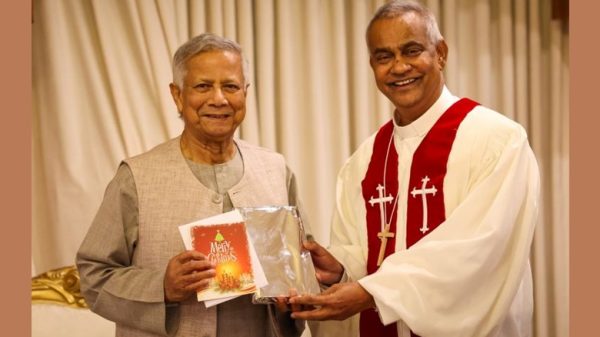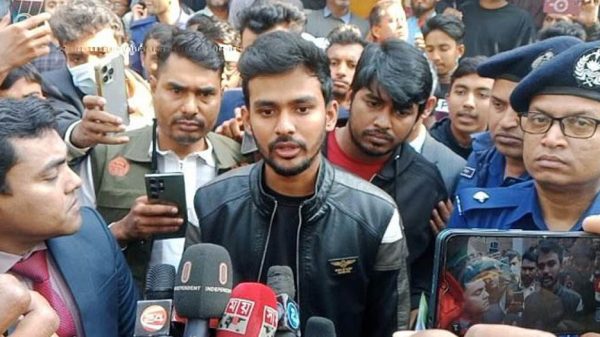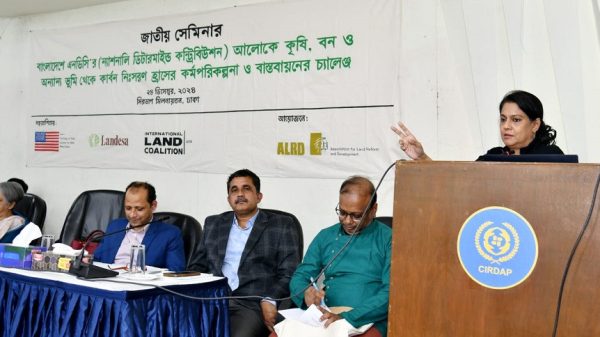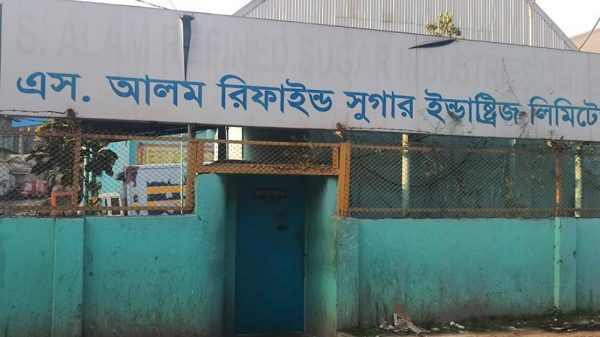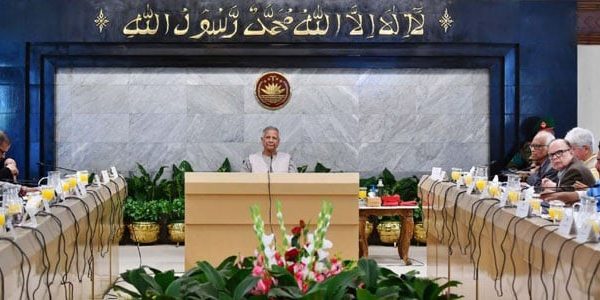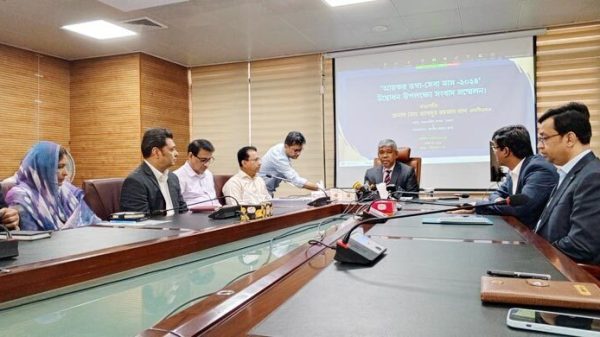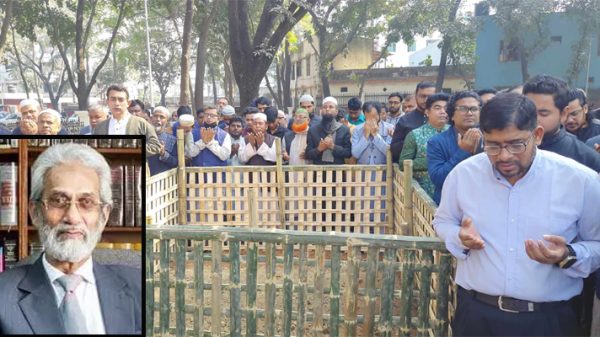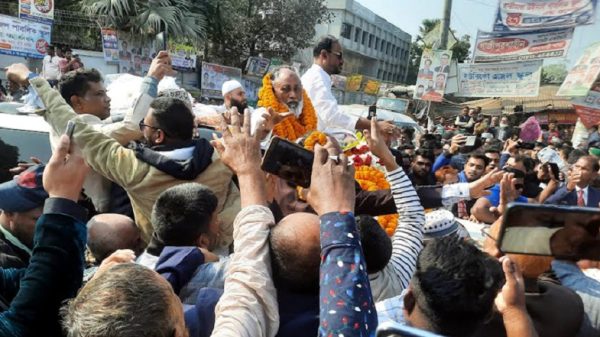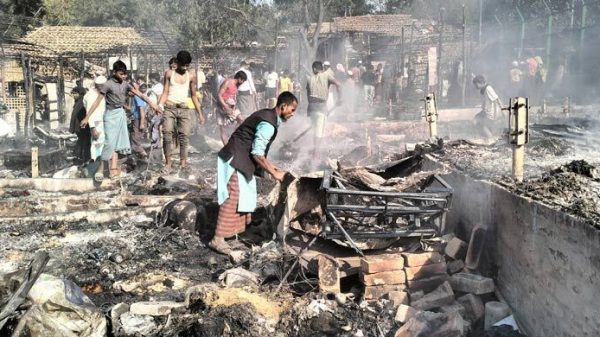Another ‘Minus Two Formula’ Conspiracy : Target this time Khaleda & Tarique

- Update Time : Thursday, 5 December, 2024, 02:12 pm
- 21 Time View
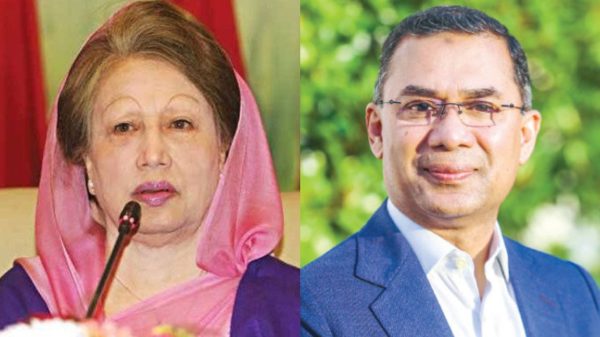
Online Desk : After failing to implement the “minus two formula” during the 1/11 political crisis, anti-national vested groups have once again started conspiring with the same strategy. As Awami League president Sheikh Hasina fled the country during a mass uprising in August, conspirators are now targeting Khaleda Zia and Tarique Rahman. Their aim is to make the country politically void and destroy local business investors while advancing an Indian agenda. Aware of this scheme, concerned citizens have protested by slaughtering a cow in front of the office of a national Bengali daily in Karwan Bazar. They identified the individuals involved as agents of RAW (India’s intelligence agency) and demanded their trial. On 11 June 2007, the editor of the same newspaper wrote in support of the minus two formula, saying that “the two leaders must step aside.” Recently, BNP Secretary General Mirza Fakhrul Islam Alamgir’s comments rekindled discussions on the minus two formula. He said, “No one should consider the minus two formula again or be involved in conspiracies aimed at excluding the BNP from the political landscape.”
Following Fakhrul’s warning to the government about the minus two formula, various discussions have emerged within and outside the party. When asked by the BBC whether there were any attempts to sideline Khaleda Zia from politics or obstruct Tarique Rahman’s return to the country, the BNP Secretary General replied, “Someone may harbour such malicious intent, but it will yield no results. We firmly state that nothing will happen in Bangladesh bypassing Khaleda Zia and Tarique Rahman.” The recent public uprising has forced the Awami League and its leader Sheikh Hasina to leave the country. Since then, the BNP has been demanding elections at the earliest possible time. However, the interim government has consistently prioritised implementing reform agendas. On the other hand, many protesters indirectly suggest, “Reforms first, then elections.” Meanwhile, commissions formed for different reforms—including constitutional, police, and administrative reforms—are actively working.
The controversial Bengali daily’s agenda appears to be delaying elections to ensure that its columnists remain in power for an extended period. It is worth noting that many of the advisors in the current interim government are columnists for the newspaper. Consequently, the public believes that this newspaper is essentially running the government. BNP Chairperson Khaleda Zia may have the possibility of travelling abroad for medical treatment. On the other hand, the party is still uncertain about when Acting Chairman Tarique Rahman, currently in London, will return to the country. Although he has been acquitted in some cases, administrative delays in removing all legal barriers have caused dissatisfaction among party members.
Meanwhile, BNP leaders believe that some recent speeches by leaders of the student movement have indirectly hinted at their party. Political analysts said that during the One-Eleven period, the editor of Prothom Alo played a significant role in efforts to eradicate politics and politicians from the country. However, no accountability has been ensured for his grievous actions. The editor himself wielded his pen to eliminate the country’s two main female leaders from politics. Editorials in Prothom Alo frequently discussed the “minus two formula,” which aimed to remove the two leaders from politics and promote the establishment of so-called elite citizens, often regarded as part of the civil society, in their place.
The controversial daily, edited by Matiur Rahman, has been accused of encouraging unconstitutional forces to seize power by tarnishing the nation’s image as a failing state and through provocative and negative campaigns. Harassing industrialists and businesspersons has also been among its alleged activities. According to concerned sources, Prothom Alo has repeatedly created unstable situations in the country yet has managed to escape accountability each time. During the One-Eleven period, Prothom Alo’s magazine ‘Alpin’ sparked outrage by mocking the Prophet Muhammad (PBUH) through a satirical cartoon. This led to nationwide protests by devout Muslims demanding the arrest of the editor.
However, due to close ties with the caretaker government at the time, Matiur Rahman avoided legal action by publicly apologising and seeking forgiveness at a conciliatory meeting in the Islamic Foundation conference room. Reports of his folded-handed apology and repentance were published in different newspapers the following day. It is worth noting that in 2007, the military-backed caretaker government undertook reforms, leading to the arrest of Khaleda Zia and Sheikh Hasina. Discussions about the “minus two formula” gained momentum during this time. Allegations arose from their respective parties, claiming attempts were being made to eliminate the two leaders from politics, a move later widely recognised as the “minus two formula.”

